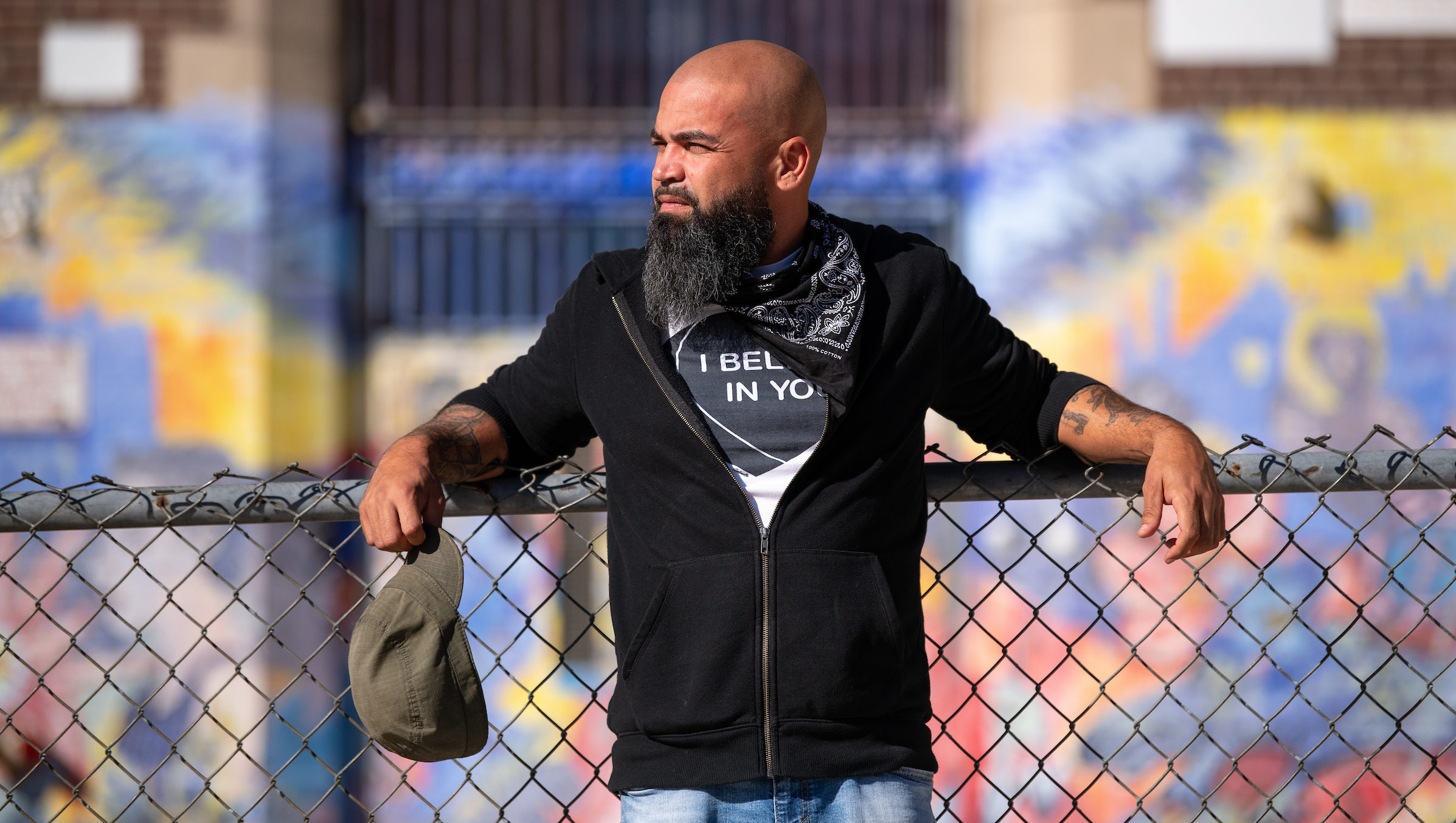True story: In Philadelphia, we have a section of the city referred to as “the Badlands.” Google Maps even plasters the term over the parts of North Philadelphia associated with the nickname. It’s a reference to the area’s crime rate, and to some, a warning to stay away. But those of us who call the neighborhoods home know they are so much more than what you hear about on the local news. My own community, Kensington, is the sound of roosters crowing while you wait for the El at Huntingdon Station. It’s the old murals on the sides of homes, vibrant as ever. It’s the old men playing checkers in the park, your neighbors freestyling on the stoop for hours. It’s merengue and maduros at the annual Puerto Rican Parade.
When you live somewhere that tends to make headlines for gun violence instead of its positive contributions to local life, you start to realize a few things. The first is that many media outlets are quick to report that there was another shooting on your street, but have little to offer those of us confronting the violence up close. The next is that your neighbors have lots of ideas and questions about keeping their families safe and recovering from traumas, but information that directly meets their needs can be hard to find. Finally, it becomes clear that if such a resource existed, there’s a chance it could help change the path your community is on.
Up the Block, a new project from The Trace, will try to do just that. As the community outreach editor in charge of the effort, I’ve spent the last few months listening to Philadelphians’ urgent concerns regarding gun violence, safety, policing, and justice. Working with local media partners and journalists, we’ve begun to gather essential information on organizations that address those concerns.
The first phase of Up the Block, produced in collaboration with Billy Penn at WHYY, builds on their indispensable list of resources for healing and rebuilding after shootings. Early this summer, we’ll launch a simple website that makes such vital info — where to find financial help for the funeral of a gun violence victim, bilingual services for shooting survivors, and much more — radically accessible. As Up the Block gets rolling, we’ll add information on safe havens and opportunities for young people threatened by gun violence. And we’ll gather ways that Philadelphians, especially Black and Latinx community members, can make sure their voices are heard by leaders as the city considers new approaches to violence prevention.
To spread the word about the resource guides we’re compiling, we’ll seek partnerships with organizations that meet information needs outside of the media, like places of worship, schools, and food hubs. Up the Block will also distribute knowledge offline, through things like mailings, flyers, and community bulletin boards. Throughout the process, I’ll continue to connect with my neighbors to understand how their perspectives and questions are evolving, using that input to improve the project.
I came to The Trace to do this work because as a nonprofit news organization, it’s committed to having a positive impact on the communities it covers. Since 2015, The Trace has reported on the extent of the gun violence epidemic in the United States, the uniquely American factors that have allowed it to run rampant, and the people working hard to try to curb the violence. Typically, that reporting has taken the traditional forms: investigations, profiles, policy articles. With Up the Block, we’ll use journalism to provide a more direct service, creating a hub of information for folks struggling through issues relating to gun violence on a neighborhood level.
While our most essential collaborators will be everyday Philadelphians affected by or working to reduce shootings, Up the Block will also draw inspiration from the media organizations already finding creative ways to meet community information needs. Billy Penn, Resolve Philly, The Philadelphia Center for Gun Violence Reporting, and Free Press are pioneers in the kind of service journalism to which we hope to contribute. We’re excited to join them in their efforts.
Philadelphia had nearly 500 homicides in 2020, including an alarming 65.3 percent increase in child shootings, and we have already had nearly 300 shootings during the first months of 2021. This violence disproportionately kills and injures Black Philadelphians, who make up 82 percent of shooting victims, but just 43.6 percent of the population. Throughout my conversations with Philadelphians, I’ve heard how heavily gun violence weighs on many of us. I’ve spoken with Black mothers who want to know how to keep their children safe when they’re out playing, and young Black men looking for guidance on building a life after incarceration on gun charges. On local radio shows like G-Town Radio, I’ve listened to lifelong Philadelphians asking how they can get involved in local politics to influence gun violence solutions.
We’re building Up the Block to try to provide those answers and fill other information gaps that people share with us in the months ahead. So if you’re reading this as a fellow Philadelphian: Let’s talk. Do you have questions about recovering from, avoiding, or preventing gun violence in your city? Are you a journalist, storyteller, or media organization interested in working together? Please email me at [email protected], follow us on Instagram at @uptheblockphl, or sign up for email updates using this form.



